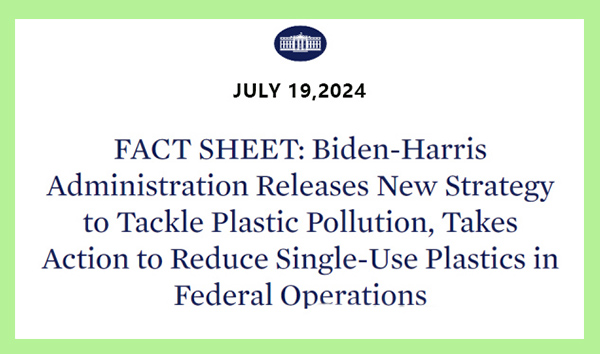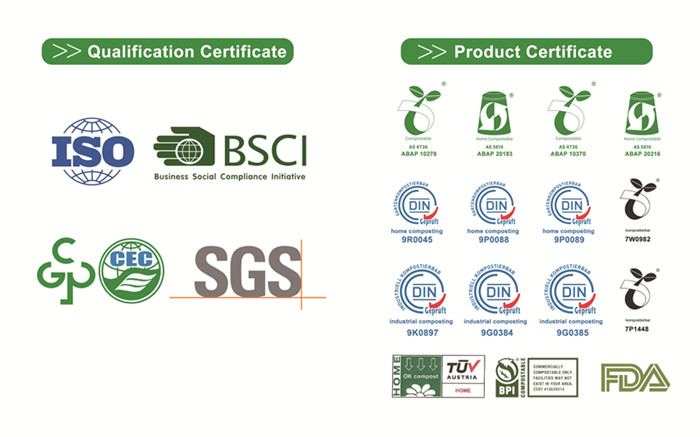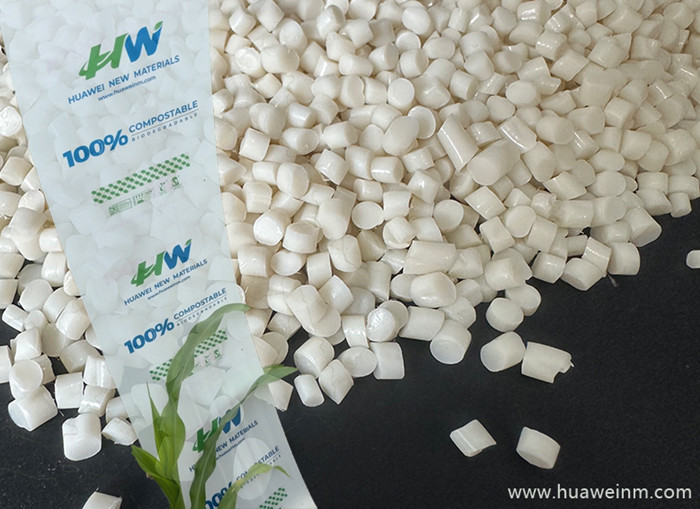On July 19th, the White House released the first comprehensive government strategy in the history of the US federal government to address plastic pollution in production, processing, use, and disposal. The report "Mobilizing Federal Action on Plastic Pollution: Progress, Principles, and Priorities" outlines the necessary steps to take government approaches to address plastic pollution.

The report begins by stating that plastic pollution has become an environmental crisis in the United States and even globally, with millions of tons of plastic waste entering the ocean every year, posing a serious threat to marine life and ecosystems. Plastic is not only difficult to degrade, but also decomposes into microplastics in the environment, which can be ingested by animals and humans, posing health risks. In addition, greenhouse gas emissions generated during plastic production and processing also exacerbate climate change.
In order to further address the plastic crisis, the Biden Harris administration has released the first comprehensive government wide strategy on the production, processing, use, and disposal of plastic pollution to reduce its impact throughout the entire plastic lifecycle, and calls for continued coordination and cooperation with state, local, tribal, and territorial governments, local communities, the private sector, and other stakeholders to address the scale and breadth of the plastic pollution challenge.
1. Reduce the sources of plastic pollution: The government will focus on reducing pollution atvarious stages of the plastic lifecycle. This includes all aspects from raw material selection toproduct design, production, consumption, and waste management. Reduce reliance ondisposable plastics by promoting more sustainable materlals and product design.
2. Eliminate single use plastics: The government plans to gradually phase out single use plasticsIn federal food services and shift towards reusable, compostable, and highly recyclableproducts by 2027. in addition, by 2035, disposable plastics will be completely phased out in al!federal operations.
3. innovation and technological development: The government will support research anddevelopment of plastic alternatives, encourage enterprises and research institutions to innovate,develop more environmentally friendly materials and technologies, in order to reduce the use ofplastic and the generation of waste.
4. Strengthen waste management: lmprove the waste management system, increase recyclingrates, and reduce the loss of plastic waste. By optimizing the recycling process and infrastructureconstruction,we ensure that more plastic waste is effectively treated.
5. international Cooperation and Leadership: The United States will strengthen cooperation withother countries and intemational organizations to jointly address global plastic pollution issues.As a leader in global environmental governance, the United States will promote the developmentof stricter intemational standards and agreements to address global plastic pollution.
The report begins by stating that plastic pollution has become an environmental crisis in the United States and even globally, with millions of tons of plastic waste entering the ocean every year, posing a serious threat to marine life and ecosystems. Plastic is not only difficult to degrade, but also decomposes into microplastics in the environment, which can be ingested by animals and humans, posing health risks. In addition, greenhouse gas emissions generated during plastic production and processing also exacerbate climate change. In order to further address the plastic crisis, the Biden Harris administration has released the first comprehensive government wide strategy on the production, processing, use, and disposal of plastic pollution to reduce its impact throughout the entire plastic lifecycle, and calls for continued coordination and cooperation with state, local, tribal, and territorial governments, local communities, the private sector, and other stakeholders to address the scale and breadth of the plastic pollution challenge.
Weifang Huawei New Material Technology Co., Ltd
Weifang Huawei actively responds to the national "plastic ban" policy call and is committed to the research and development, production, and sales of fully biodegradable material technology. The HW-TS/TC series developed and produced by the company is a type of green and environmentally friendly thermoplastic resin. It is made of PBAT as the substrate, modified with starch and calcium carbonate, and produced through melt seeding plasticizing extrusion technology. The material does not contain polyolefin plastics and can be degraded under specific conditions such as natural or soil composting, becoming harmless substances such as carbon dioxide and water. We have obtained degradation certifications from domestic, EU (DIN CERTCO, TUV), US (BPI), Australia (ABA) and other countries or regions.

The company regards product quality as its life and customer satisfaction as its purpose. To achieve the national goals of "mass entrepreneurship and innovation", reduce carbon emissions, and control white pollution, we are willing to work together with various enterprises for common development!

